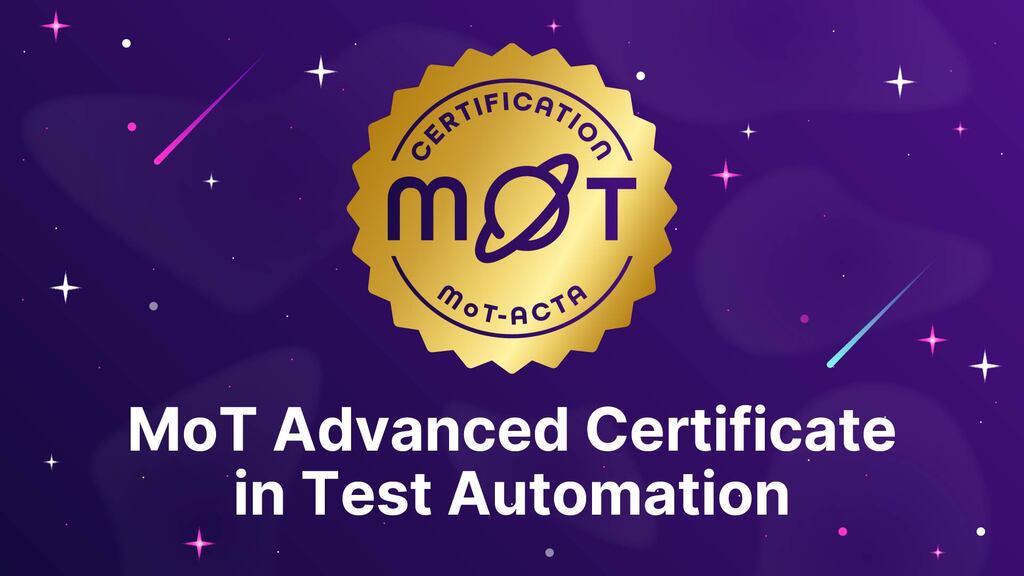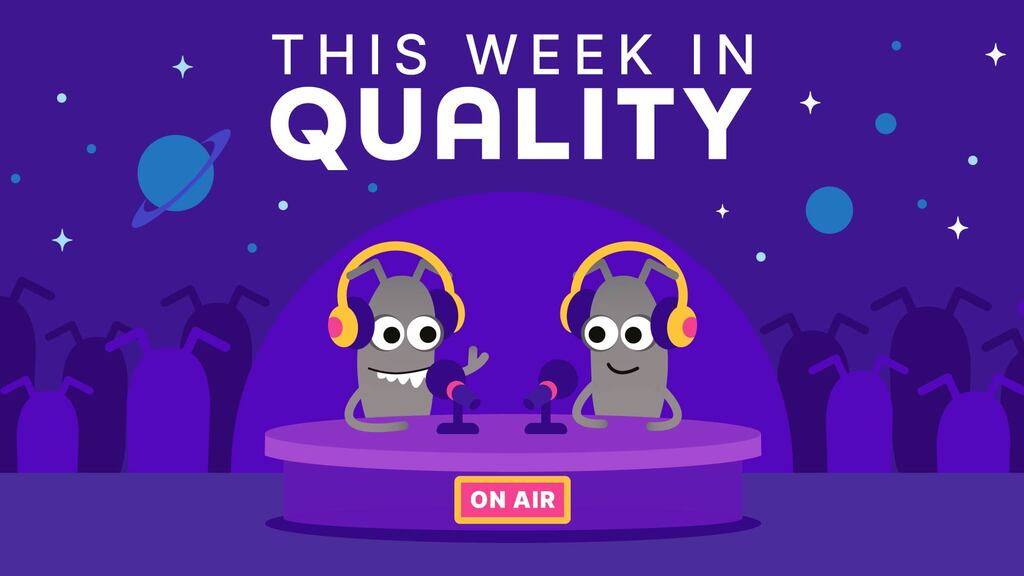By Jonas Menesklou
Starting out in any aspect of testing, like anything, can be quite challenging. There are endless blog articles (including this one now!), tutorials, and a multitude of course offerings (even Ministry of Testing). It's easy to get lost. In the beginning, you’ll find yourself on endless Google searches before you have found your own way. This is where the testing community is as helpful as no other, by simply asking questions you can easily save yourself unnecessary searches and confusing posts.
In this article I talk and share my experiences as a newcomer in the testing community and give an overview about what I found to be the best places to ask questions and exchange ideas with like-minded people. As part of this, I’m not looking at information sites or tutorials - but at social media sites (Slack, Twitter, Facebook, LinkedIn and Reddit) used by the community.
Finding Useful Testing Information
My first contact with software testing was during my studies. I had to develop a React full stack application and automate the UI tests for it at the same time. To be honest, I hadn't really thought about software testing until then - it sounded more like a necessary evil to me and I didn't really understand its importance. I still remember my first Google search: "React UI Test Automation".
That search started a journey that has defined my career to this day. I was initially overwhelmed by the sheer number of tutorials, blog posts, and tools that all seemed to be the solution to my problem. Upon further research, however, almost every single one turned out to be less than perfect for my problem. After a week of research I solved the whole thing with Selenium. Looking back, it was pretty simple - I can't believe how much time I needed for such a simple solution. And even if it is almost embarrassing to think about it now, my problem is exemplary for many beginners in test automation who are confronted with similar problems. It's just insanely difficult to keep track of all the tools, blogs and tutorials.
There is a simple solution to this problem - the test community. If I had asked someone from the community instead of Google, my problem would probably have been solved in half an hour. I have rarely met such helpful and nice people as here. However, there are also many different contact points in the community itself and it is exactly these that I would like to summarize and look at in more detail in this article. In the following, I will show where you can find and ask for help - as soon as you need it.
Which Channels Are Relevant?
First of all, you need to understand which channels are relevant for testers in the first place, after all, there are quite a few of them. Facebook, LinkedIn, Twitter and many others. I will look at the most active ones in more detail below. Of course, there are many others, but this selection should suffice for a good first overview.
The Social Media Point of View
The first channels are groups that deal with the topic in social media. Not all channels are used by testers, but mainly Twitter, LinkedIn and Facebook have established themselves - due to the focus on textual communication in these channels - channels with a focus on image media, such as Instagram, are therefore logically less suitable for a technical exchange.

Facebook is one of the oldest social networks and is known to almost everyone. Although the focus of the platform is rather in the private area, the groups are used especially by many testers for exchange. The largest groups to search for are QA TestAutomation forum (>12000 members, private), Software Testing and Quality Assurance (>9000 members, public) and Software Testing (>9500 members, public). Whether a group is private or not is of minor importance, you will be accepted quickly. A big advantage of the groups is that you can ask questions very easily and get help directly. The disadvantage of the groups, however, is that they are sometimes used a lot for marketing products, courses and blogs - this means that the actual exchange sometimes takes a back seat. You can get around this somewhat by engaging in personal exchanges with members through personal messages and friend requests.
Twitter focuses on the exchange of short messages. It is particularly popular among techies, since new information can be shared and commented on quickly. It is basically suitable for questions, but only if you already have some followers. A good start to get followers is to follow, like and comment on posts from well-known test influencers, such as Joe Colantonio, Angie Jones and Tristan Lombard. Furthermore, you should use hashtags in your posts to attract the attention of interested people.
Also, Twitter is an excellent way to get first-hand news from the test community itself. Besides test influencers, there are numerous groups that you can follow, it’s worth spending some time searching for useful people to follow - you can even look at who they follow and find a great community. Particularly noteworthy are Ministry of Testing (>20000 followers), Software Testing (>14000 followers) and Quality Testing (>4700 followers).
LinkedIn
The most professional social network is LinkedIn. Here many questions that you may have, especially career-related questions, will find an answer. There are also very large and well-maintained groups in which jobs, courses and blogs are regularly shared which you may or may not find relevant for you. For specific questions, you can usually get a good answer, but they should not be too specific and technical. For example, questions about test strategies, tool usage and tool advice in general are good. You should also use hashtags in your posts to address the right people.
You can search for large groups such as Software Testing & Automation (>250000 members), Test Automation (>127000 members), Software Testing and QA (>15000 members) and Software Testing / QA & Automation (>9000 members).
Digging Deeper
The channels mentioned so far are excellent for a first introduction to the topic and are very easy to reach. However, they are probably better for more general questions, if you want to go into deeper specifics, you should consider using certain groups or the following channels.

Slack
Slack is one of the most popular communication apps for businesses. It is extremely easy to communicate with employees and very simple to use. As a result, it has also proven itself as a communication platform for many tech communities worldwide. Especially in the testing community, there are several channels where you can ask the community directly - and at the same time the channels are very well maintained, so there is hardly any spam. For most questions, you can find very good answers in these channels. For example, the Slack channel Ministry of Testing (>10500 members), Test Automation University (>8000 members), and TechWell Hub (> 5500 members) are good places to start.
Reddit
Although Reddit is one of the largest forums in the world, the testing community is only moderately spread there. You can find Subreddits on the topic, but you will find more people from the community in Slack or other forums. However, if you don't want to join the other forums, you can ask your question on Reddit in the Subreddit r/QualityAssurance with more than 13000 members. There is also a Subreddit for test automation, but it only has about 700 members.
Forums
Besides Slack, forums are probably the best place to go for very specific questions. There are several large forums in the area of UI test automation. These include Ministry of Testing, sqa.stackexchange, uTest and testHuddle. The latter two, however, are geared more towards freelancers and people with experienced careers in software testing than beginners. Nevertheless, you can find help for any kind of questions about UI test automation there as well. The disadvantage with forums in general is, however, that you have to create an extra account for each of these forums. Furthermore, forums are asynchronous, which means that answers are usually received more slowly than on other social media. Another disadvantage is that, unlike Twitter or Slack, notifications are missing and regular checking of the forum for replies is necessary. On the other hand, longer and more detailed questions can generally be formulated due to its asynchronous nature.
Meetups
Meetups occupy a special position among these channels. Although they don't count in the classic sense, since they are actually events, I would still like to mention them. Especially at Meetups, you can quickly find opportunities for direct personal exchange and make very valuable contacts. At the same time, you very often find free, technically very strong contributions with the possibility to get into direct exchange with the references. Therefore, these are sometimes a real alternative to conferences. Which Meetups you should visit depends on the country and region. For Germany for example I can recommend the Continuous Testing MeetUp Berlin (>1900 member), Ministry of Testing Munich (>700 member) or Software Testing Karlsruhe (>50 member). Due to them being mostly held in English and online right now, it is worthwhile to drop by for interesting presentations - even if you are not living there. You can always find a Ministry of Testing Meetup happening near you on this global list.
Key Takeaways
There are countless blogs, forums and tutorials in the area of UI test automation. It is easy to lose track. Thereby, the test community is a good place to start for all kinds of questions. Although each channel has its own advantages and disadvantages, it is best to ask your questions on different channels and form your own opinion based on the answers. That way you can find your own way into the testing community and maybe even make your own contribution in the future.
Finally, I would be interested to know: Which channels are you currently using and what are your experiences with them?
Note: The specific examples in this post only give a rough overview of groups and contact points in the community. Of course, there are many more groups, Slack channels and forums, but I can not mention them all due to their complexity. This post should therefore only give a small insight into first contact points of the community.
About the Author
Jonas Menesklou studied Industrial Engineering (M.Sc.) at the Karlsruhe Institute of Technology with a focus on user-centric security and QA. Furthermore, he is the founder of the startup askui, which offers a functional UI test solution. Through his work with startups he knows the pitfalls of early software products and UI test automation. Jonas tries to overcome these in his daily work.
LinkedIn: www.linkedin.com/in/menesklou
Twitter: @JonasMenesklou




